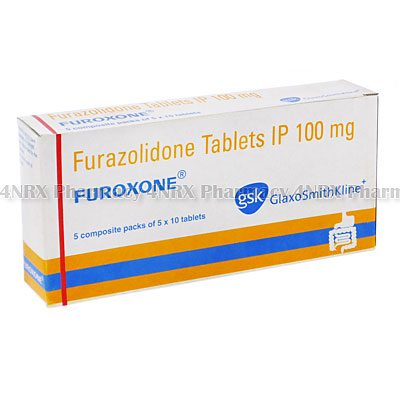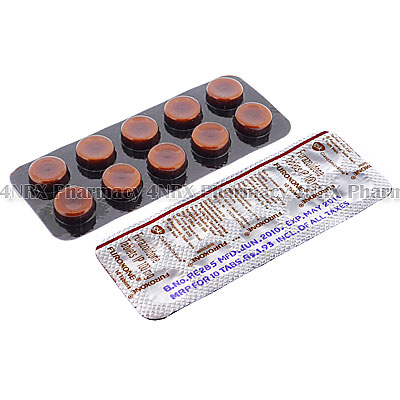 |
Home  Infection Infection  Furoxone (Furazolidone) Furoxone (Furazolidone) |
|
|||||||||
|
|
Furoxone (Furazolidone)
What is Furoxone (Furazolidone) used for? Furoxone (Furazolidone) is an oral medication used to treat bacterial or protozoal infections. It is commonly prescribed for the treatment of cholera, diarrhea, or colitis caused by bacteria or microorganisms. The medication stops the reproduction of bacteria or kills the microorganisms allowing the immune system to destroy the infection so that it may be eliminated from the body. Your physician may also prescribe it to treat other unlisted conditions. How should I use Furoxone (Furazolidone)? One tablet of Furoxone (Furazolidone) is normally taken once or twice each day for a cycle of medication lasting one or two weeks, but your individual directions will be determined by your weight, the condition being treated, your current health, and the severity of your symptoms. The tablets should be swallowed with a large glass of water and may be taken on an empty stomach, but a snack or meal is suggested before use if you get an upset stomach. Do not stop taking the medicine prior to the end of your medication period as the infection may not be gone and can return stronger or more resistant to treatment. Never alter the form of the tablets before use to avoid destroying or changing their effects. What are the side effects of Furoxone (Furazolidone)? Furoxone (Furazolidone) may cause side effects in some patients such as:
Serious side effects that may require emergency medical attention include fever, flu symptoms, hypotension, or a severe skin reaction. These conditions may require lower doses, reduced frequency of application, or other adjustments to your regimen to prevent more health problems from appearing. Please Note Strictly follow all instructions provided to you by your physician or pharmacist while using Furoxone (Furazolidone). Optimum and safe dosage can differ based on the patient and the condition being treated. As this medication may be unsafe for certain patients, it is essential you always inform your physician if you are pregnant or breastfeeding, as well as if you have any allergies, other illnesses, or ongoing health conditions, and if you are taking any other form of medication, supplements, or herbal products. Immediately seek emergency medical care if you have an allergic or hypersensitive reaction. Common signs of a reaction include hives, swelling, skin rashes, chest pains, as well as trouble breathing or swallowing. 

|
||||||||||||||||||||||